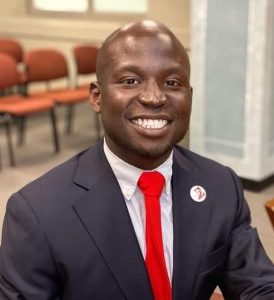United States Representative, Dr. Oye Owolewa, is a man on a mission. Born to Ayo and Bolade Owolewa from Kwara State, Nigeria, Dr. Owolewa knew, from an early age, what he wanted to do with his life – make a difference by being the voice for the voiceless and creating a presence for those who are invisible in America’s socio-political process. His battle for equality for minorities included ensuring that more minority students enrolled in pharmacy and other healthcare programs, a passion he advanced through participation in student government.
When Dr. Owolewa graduated with a doctoral degree in Pharmacy from the prestigious Northeastern University in Boston, he realized that he needed a bigger platform to continue his fight for equality for minorities. He packed his bags and headed to the one place where hundreds of thousands of Americans remain disenfranchised- Washington DC. Once in Washington, Dr. Owolewa immersed himself in his new community, contesting in local elections that allowed him to advocate for universal voting rights. In 2020, Dr. Owolewa was elected to the US Congress in a landslide, making him the first Nigerian-American to be elected to a federal position in the United States.
Nigerian Parents Magazine (NPM) recently sat down with Dr. Owolewa to understand more about his background, mission and passion.
Enjoy the interview. And please leave us your comments.
—
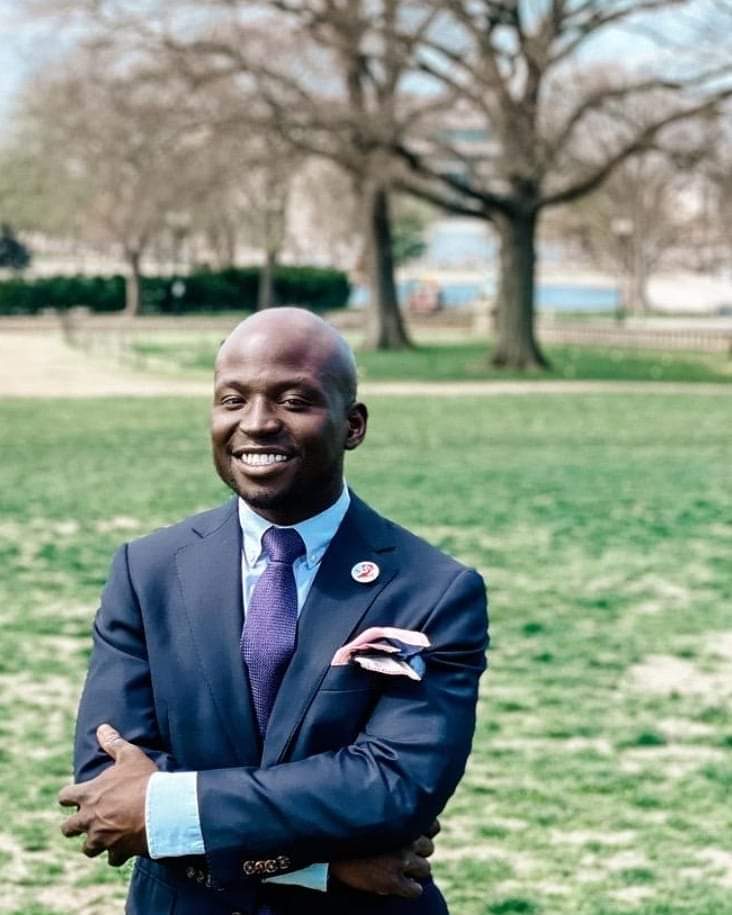
NPM: We are very excited to have you here with us. Thank you for coming to speak with the Nigerian Parents Magazine tonight.
OWOLEWA: Thank you so much for having me.
NPM: Let’s start from the beginning. Tell us about your background, your upbringing, your family, and anything that helps us get to know how you started out and how you got to this point.
OWOLEWA: Thank you for that question. I am US Representative Dr. Oye Owolewa. Both my parents were born and raised in Nigeria, and they moved to Boston separately for education. There they had five children. I am the fourth out of five.
My siblings and I were raised with an early love for community service and being involved in education and professional sciences. Therefore, I went to Boston Public Schools. I earned my doctorate in pharmacy from Northeastern University. I moved to Washington DC for a new challenge and the opportunity to make a positive change in neighborhoods like the one I grew up in in Roxbury. I have been practicing as a pharmacist since 2014.
The very first thing I did outside the realm of pharmacy was actually getting involved in local education. I joined a local organization called reset and what we did was we volunteered at schools, giving young children that look like me, and some that do not look like me, that early exposure to science.
 After that, I stayed involved in the community. I ran for a couple local elections before I decided to run for US representative. And that is where I am at the moment, fighting for statehood, equal rights, and many other things that the Nigerian community, as well as the DC electorate, really care about.
After that, I stayed involved in the community. I ran for a couple local elections before I decided to run for US representative. And that is where I am at the moment, fighting for statehood, equal rights, and many other things that the Nigerian community, as well as the DC electorate, really care about.
NPM: Congressman, you mentioned your Boston roots. How was it living in Boston?
OWOLEWA: It was definitely interesting. You know, being a Nigerian-American and living in America brings its own duality of experiences. The way I like to describe it is that I was born in the States, but I was raised the Nigerian way. My parents taught me about community building, that your house is open to everyone, and that we look out for each other and provide resources for each other.
At the same time, I did grow up as an American as well. Therefore, I have seen the things that happen in Roxbury, whether it is the white flight, gentrification, things happening in our city, and the fact that black Americans and white Americans have two completely different experiences living in this country. So that shaped the person I became. I love the culture of both countries and I really bring that process with me as I enter the lawmaking process.
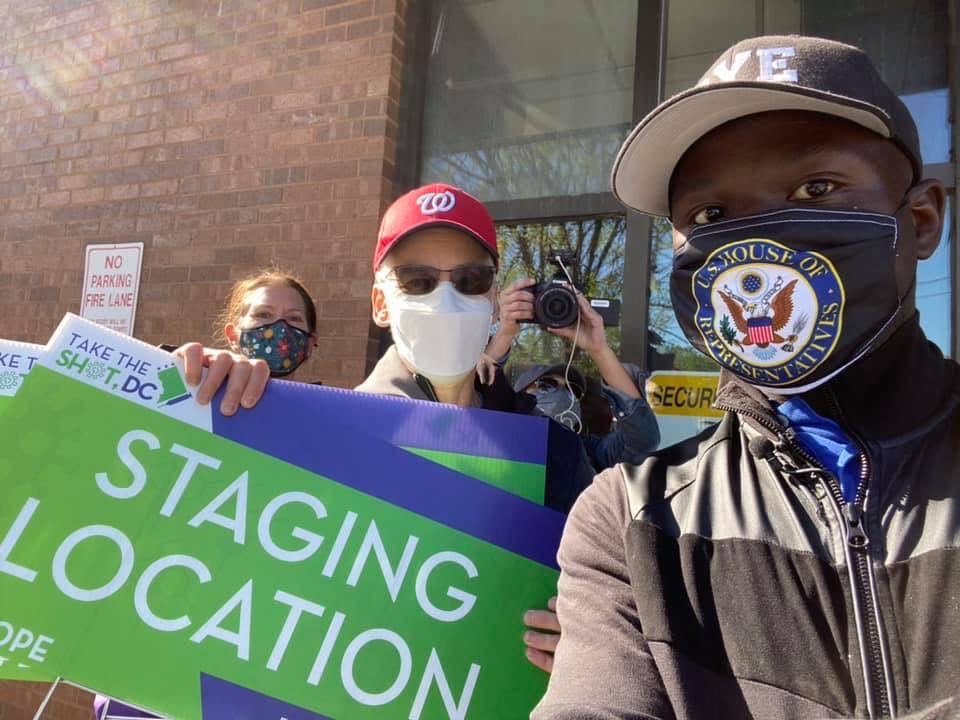
NPM: I am going to zero in on something that is so important to our audience. That is bringing up well-adjusted children. Now, you have obviously done very well for yourself. You are well accomplished, and we are so excited to have somebody like you in the US Congress. However, to get in there must have taken a lot of discipline and a lot of hard work. How did you stay so grounded to get to where you are today?
OWOLEWA: It took a daily commitment to get better. you have to focus on that day ahead of you, because if you think too far into the future, it can be very daunting. Five years ago, I did not believe I would be in this position today. But having the right people around you, having the right mentors, reading a lot, being able to find inspiration and do the right thing on a daily basis, are what make you succeed at the end of the day.
Surround yourself with people that will guide you, and make sure that you are focused on the task ahead of you. Make sure that you remember what your parents imparted on you – you do not steal; you do not cut corners; making sure that you know that somebody is watching at all times. Make sure that you are an inspiration and make sure you are doing the right thing so that the people coming up behind you can also be inspired to do the right thing as well.
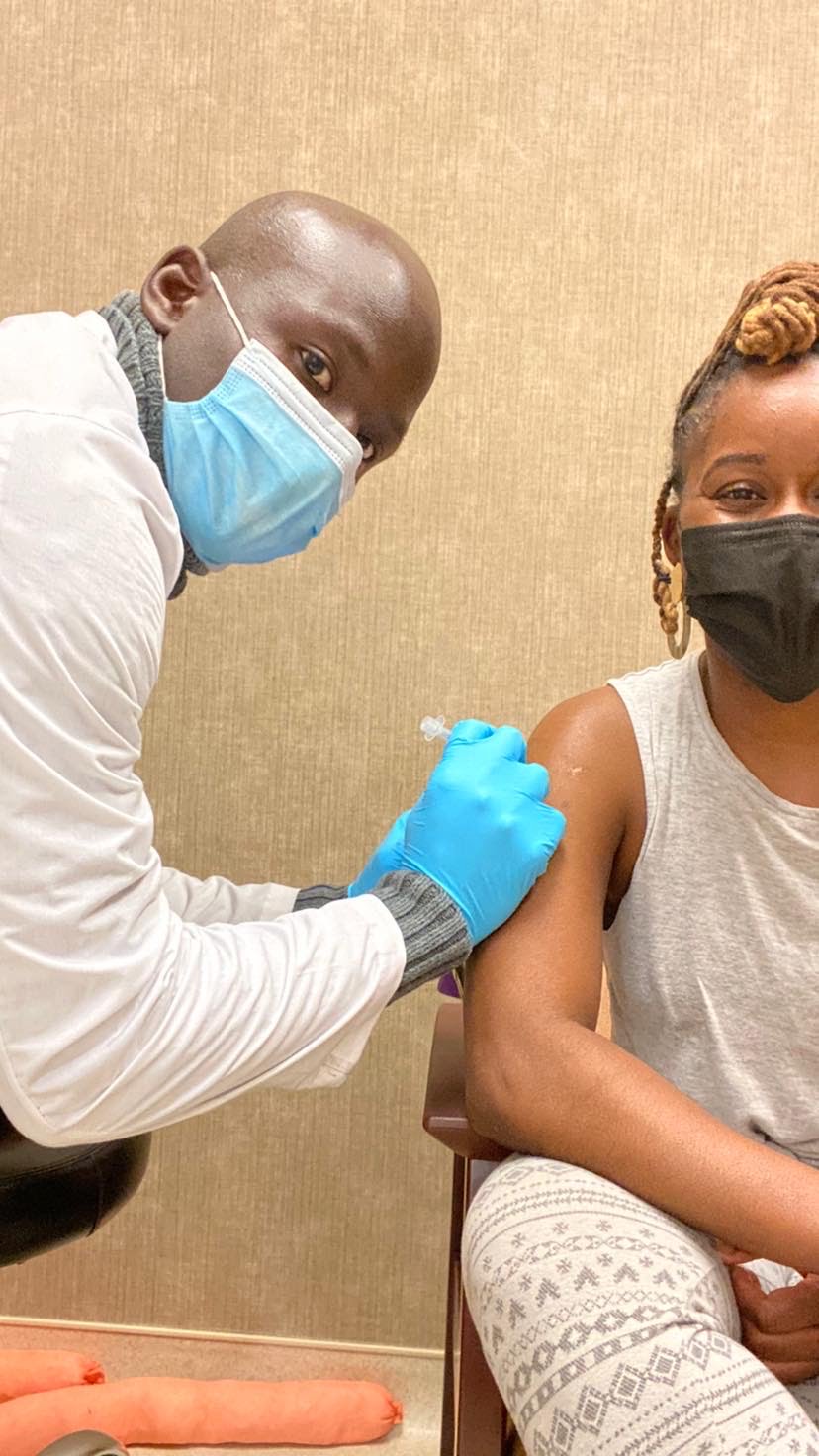
NPM: Congressman, let me switch gears to what you are doing now. Obviously, you are a trained pharmacist and you have mentioned the love for public service. But what really made you decide to go into politics at such a high level as running for congress?
OWOLEWA: I still consider myself a pharmacist. I am still doing that on a regular basis. But being a healthcare professional, and being as publicly accessible as a pharmacist, allows me to take care of challenges and be involved in an aspect that most people aren’t. One of the reasons why I got into politics is that most of our healthcare policies are formed and voted on by people that lack healthcare perspective. So a lot of times, there are laws that look really good on paper, but do not have much functionality once you get into the healthcare space. Given my healthcare background, I felt that there was so much more for me to offer.
Also, the fact that I grew up in a family that really stressed being involved helped. I remember being a little kid going to parties with my parents. As early as six years old, my parents would tell me to help set the table for the party – bring the forks; bring the spoons; bring the plates. That naturally progressed into a life of public service.
NPM: Congressman, what does a non-voting member of congress mean?
OWOLEWA: I am a non-voting, unseeded representative. What that means is that although I represent a community that pays our taxes, yet we have no say in national policy. So until we become a state, the only thing we can do is advocate for what we believe in. We are locked out of representation. That is what we are fighting for, and we are trying to push people outside of DC who do have voting rights to push their elected officials to support our voting rights as well.
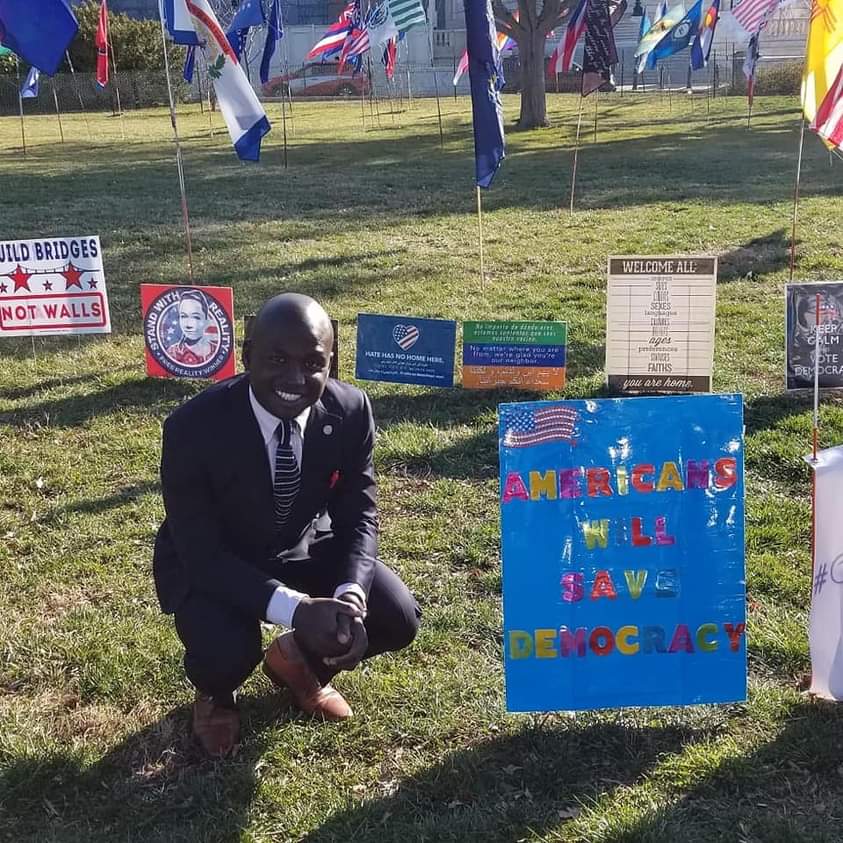
NPM: Let me ask you a follow up question to that. Is that connected with your current push for statehood for the District of Columbia?
OWOLEWA: Absolutely. In DC, we are fighting for equality. We just want what everybody else has. When I moved from Boston to DC, I did not believe that it would cost me my voting rights, my citizenship. So when folks came down to DC in 2016, when Trump was elected, they protested in the streets, telling their representatives and senators to keep a check on the power of the current or previous administration. As a DC resident, I felt invisible. So I was marching alongside the folks that came in from outside of DC. When they left, they had an action plan. We had none. So that really got me involved in fighting for our rights here, and it culminated in me running and being elected by the good people of DC.
NPM: As a Nigerian-American, you must be going through the same thing as all of us are going through here about the things that are going on back home. Nigeria is a very wealthy country, a country with some of the most educated people per capita. Yet, somehow, Nigeria does not seem to be able to get it right, when it comes to politics and when it comes to governance. How do you feel about what is going on in Nigeria?
OWOLEWA: I am very concerned about what is going on in Nigeria. There are so many different political situations going on. A lot of safety issues are going on in Nigeria. And most recently, last year, the ENDSARS movement culminated in the LekkI tollgate massacre. I am pushing Congress to pass a resolution about the ENDSARS. They have actually created one. I am also working on including language that supports young people who really raised their voice and concerns about what is going on in Nigeria, not only in the country but here in America as well.
One of the things that I am working on in the states is coalescing a voice of African millennials, who are often left behind when it comes to the political process. We are often told to shut up and vote, not only here, but also in Nigeria. I am working to elevate the voices of Nigerian-Americans, Indian Americans, and all second generation African-Americans who often are not really heard when it comes to the political process. And likewise, I hope Nigeria also does the same to really elevate the voices of Nigerian millennials, Gen Z’s and the younger generation, because this is their future. This is their country. They not only need opportunities, politically, but also economic opportunities. They need to be able to graduate University and have jobs, because without that, there’s no real way for them to elevate themselves and their families.
NPM: Thank you, Congressman, for everything that you are doing here in the United States and also trying to help young Nigerians. Do you have any advice for our leaders in Nigeria?
OWOLEWA: The advice I have is just empowering young people. I believe that is the easiest first step. You know we do have a culture where we respect our elders. I like that, and it is something I think that the American culture can adopt. But sometimes we sort of discount the voices of young people, not only in Nigeria, but here in the United States as well. I believe there is a wealth of opportunities, and a wealth of understanding. Technology is rapidly improving year after year to the point that folks who are younger than 30 years have access to information that those older never had. We have to really develop that mindset to empower these young ones to make sure that they move Nigeria forward.
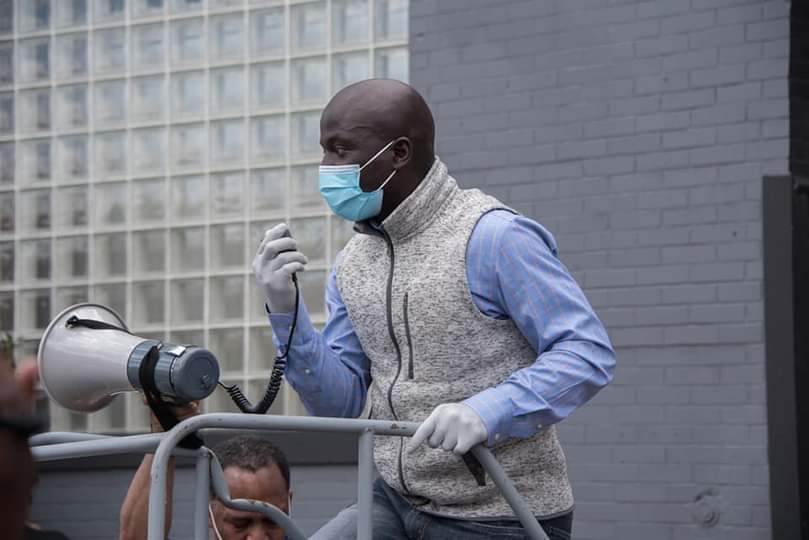
NPM: Congressman, we want to get involved in what you are doing because we believe in it. And we believe in you. What can the young Nigerians and other Africans do to help?
OWOLEWA: Thank you for that question. Although I occupy this seat right now, it belongs to DC residents. It also belongs to Nigerian-Americans and to Africans all across the country who do not see themselves represented in Congress. The easiest thing that you can do is follow what we are doing online; whether it is my Instagram, whether it is my website and volunteer time. We all have different skills. Because right now we are getting out of COVID, there is a lot of online work we are doing. Finally, yet importantly, you can donate. Whether it is $5 or $10, it goes a long way. This money supports our team. This supports our mission and allows us to really move around and bring our message outward.
NPM: Dr. Owolewa, my next question is kind of an open-ended question. Is there anything that we have not asked you, but you would like our audience to know about you and the work that you are doing?
Owolewa: Absolutely and especially when it comes to Nigerian-Americans. When I first ran for this position, my sole focus was on the 700,000 plus DC residents who lacked representation. But as I got close to the finish line, I started seeing more support from Nigerian-Americans, even other West-African Americans in this country. It made me realize I am also representing the Nigerian community, the African community, the young black community, the millennial community, because we often look at Congress and we do not see our reflection.
As I said before, this is our seat; we have to keep this going. Ever since I was elected, I started hearing about other Nigerian-Americans winning their elections locally. I believe the more we work, and the more we elevate ourselves politically, and increase our political consciousness and our capital within politics, then it will not be so rare to see a Nigerian-American win. You will start seeing names like Oye or Habib and people not taken aback by it. Then you can see a name like Oye and a name like John Smith, and we have the same shot at winning. So my biggest advice to everyone is to keep doing the best they can to donate to this campaign, donate to this office. Because when we support each other, that is how we can really move forward.
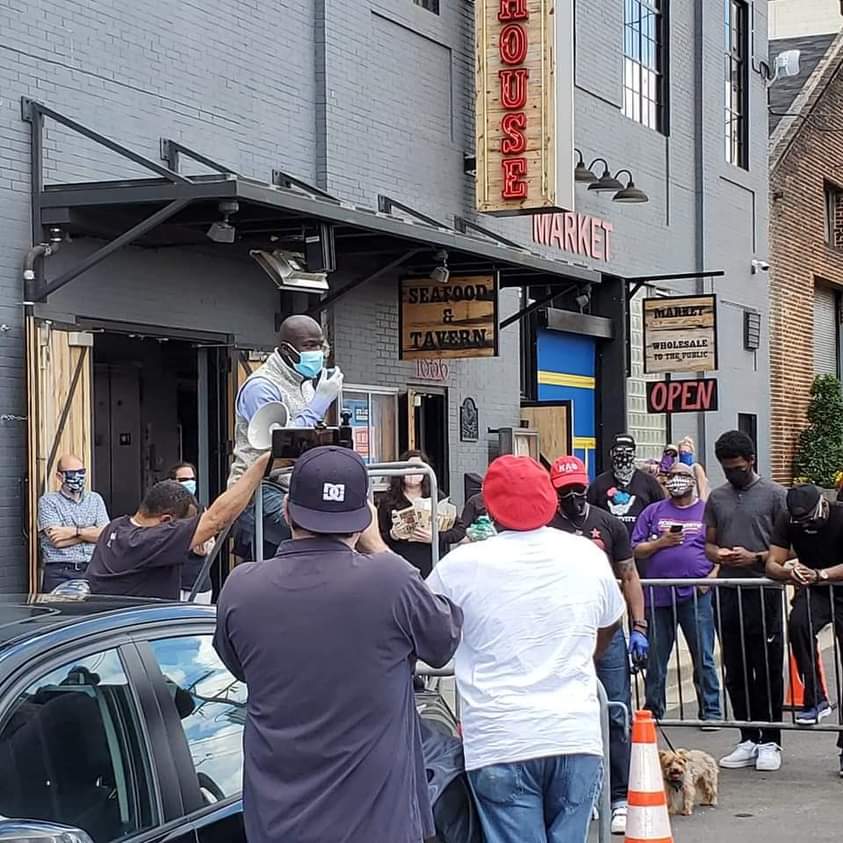
NPM: Congressman, before we finish, we have a few additional trivia questions for you. Being Nigerian, what is your favorite food?
OWOLEWA: I like jollof rice. I like jollof rice and fried plantain. My plantain has to be the white greasy one, not the dry one. I like egusi soup and eba.
NPM: Congressman, when you are not busy working for the people or being in the pharmacy, what do you do to relax?
OWOLEWA: I like reading. You know, reading allows my mind to escape and is the cheapest way for me to escape. I learn a lot by reading. I read different types of books, a lot of autobiographies, and mysteries. I will say reading is something I am definitely getting back into and enjoying.
NPM: Where do you typically like to go for vacation?
OWOLEWA: Very soon I shall be back in Nigeria. I am still working out the details. That is my next place to visit. I definitely would like to go back home to Boston. I would not say that it is a vacation because I am from Boston. I have been to Philadelphia and all up and down the East Coast. But I would say Nigeria is particularly a place I would like to go. I have never been to Abuja. Therefore, that would be an exciting new place to go.
NPM: Thanks Congressman. We will be looking forward to having you in Boston soon. We will be very happy to host you in our offices.
OWOLEWA: That would be my pleasure. Thank you for having me.


